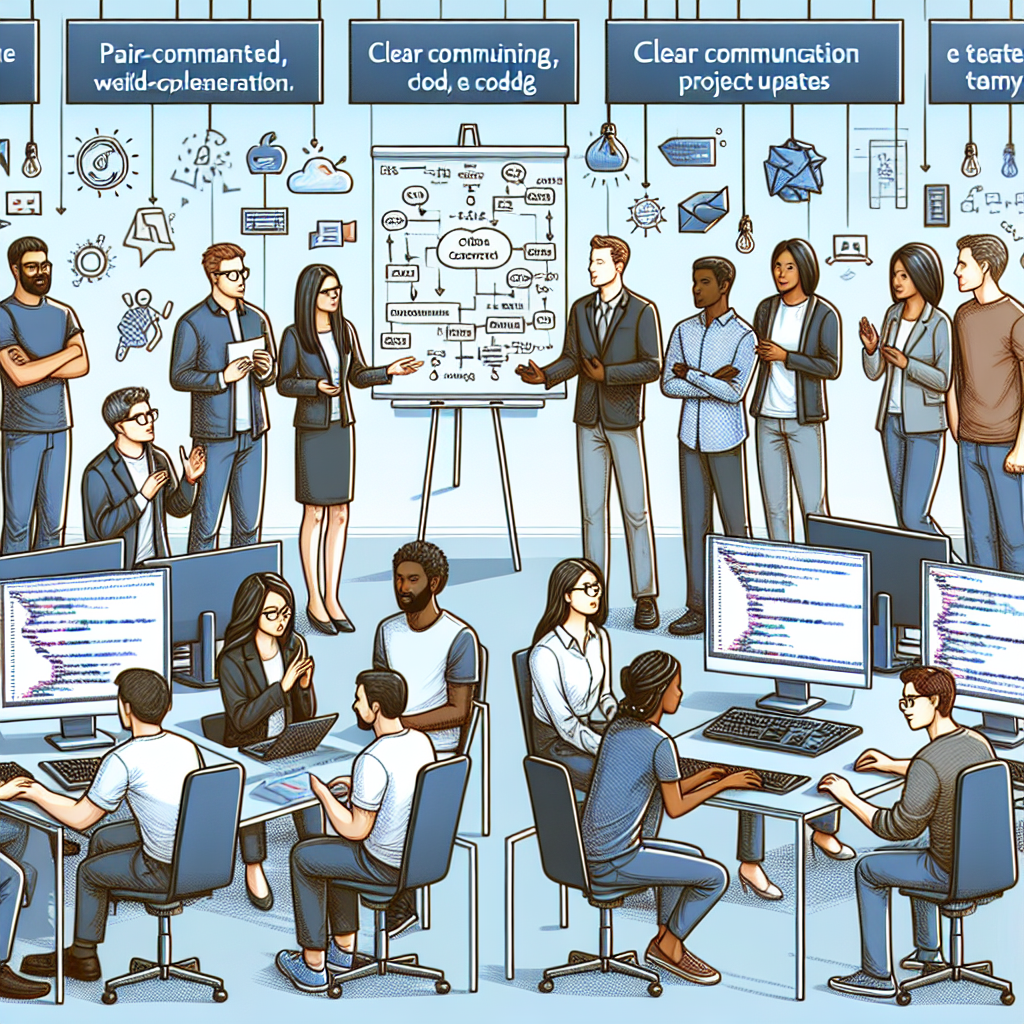The Importance of Communication as a Software Developer

Let me explain why software developers need to be good communicators. Although it may seem self-evident, this skill will significantly impact your career. I say this from personal experience, having learned the hard way. As a team leader, your communication skills are essential during job interviews, progress reviews, and appraisals. You don't want to place yourself at a competitive disadvantage. There are numerous situations where good communication skills are critical, including:
How to Conduct a Good Demo: When designing and building a product, you must regularly demonstrate completed work to your team and key stakeholders. In Agile software development, sprint demos are integral to every iteration. Regardless of the product you’re building—be it an app, a website, or even a physical item—well-executed demos improve cross-team collaboration, build trust with stakeholders, boost team morale, and allow the team to adapt based on feedback and change. This is true even for more challenging subjects like APIs and back-end services.
Working in Cross-Functional Teams: We help organizations build products and services that meet the rapidly changing demands of their industries. Regular product demos are essential for our cross-functional teams, client product owners, engineers, and designers to communicate effectively, celebrate progress, and deliver value quickly.
In this chapter, I've gathered insights on why demos are important, along with tips for running great ones.
Demos Help Us Build Better Products: Regular demos provide a short feedback loop, allowing teams to adjust quickly and ensure they're building the right product. They also surface dependencies or duplicate efforts early, highlighting opportunities for collaboration across broader programs.
Improving Team Morale: We run a bi-weekly team demo on my current project. These sessions often lead to cross-team discussions about previously unconsidered issues, enabling quick resolutions before they become blockers.
Feedback Is Essential: Don't hesitate to refine your demo format based on feedback, ensuring maximum benefit for both your team and stakeholders.
Strengthening Stakeholder Relationships: Demos help in engaging stakeholders in the development process, thereby building trust and showcasing incremental delivery of valuable working software.
Team Development: Demos allow team members to develop presentation skills and interact more closely with stakeholders. They offer a rare chance for developers, especially those in early career stages, to hone their presentation skills.
Some Tips for Running Great Product Demos:
- Zoom Out: Always provide context. Make sure to set the scene and focus on user benefits.
- Tell a Story: Keep the audience engaged by sharing challenges you've overcome and what you've learned.
- Go Slow, Keep It Simple: Present at a pace that the audience can follow and avoid jargon.
- Preparation Is Key: Always rehearse and have your demo set up in advance to maintain audience engagement.
In summary, good communication is vital. Engage in meaningful conversations and share valuable perspectives. Maintain a positive attitude to build confidence, especially if you're introverted.
For public speaking, imagine you're talking to a friend. Be genuine and listen to your audience. Remember, how you say something is often more memorable than what you say. Speak slowly, especially if English is not your first language. These tips have worked for me, and I hope they will for you too. Next time, speak with intention, slow down, and breathe. Let me know what you think, and perhaps we can collaborate now that you understand the importance of communication better.